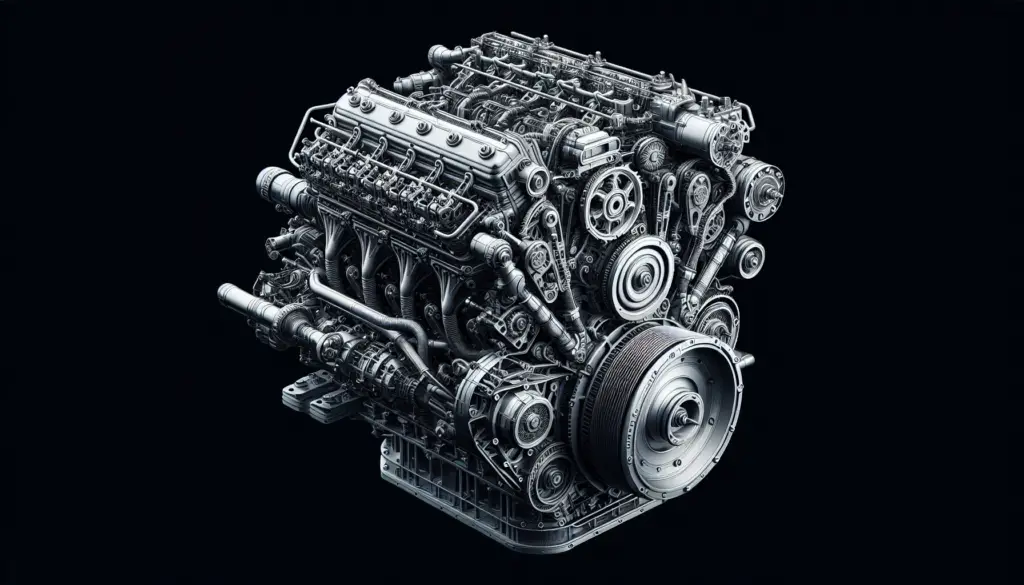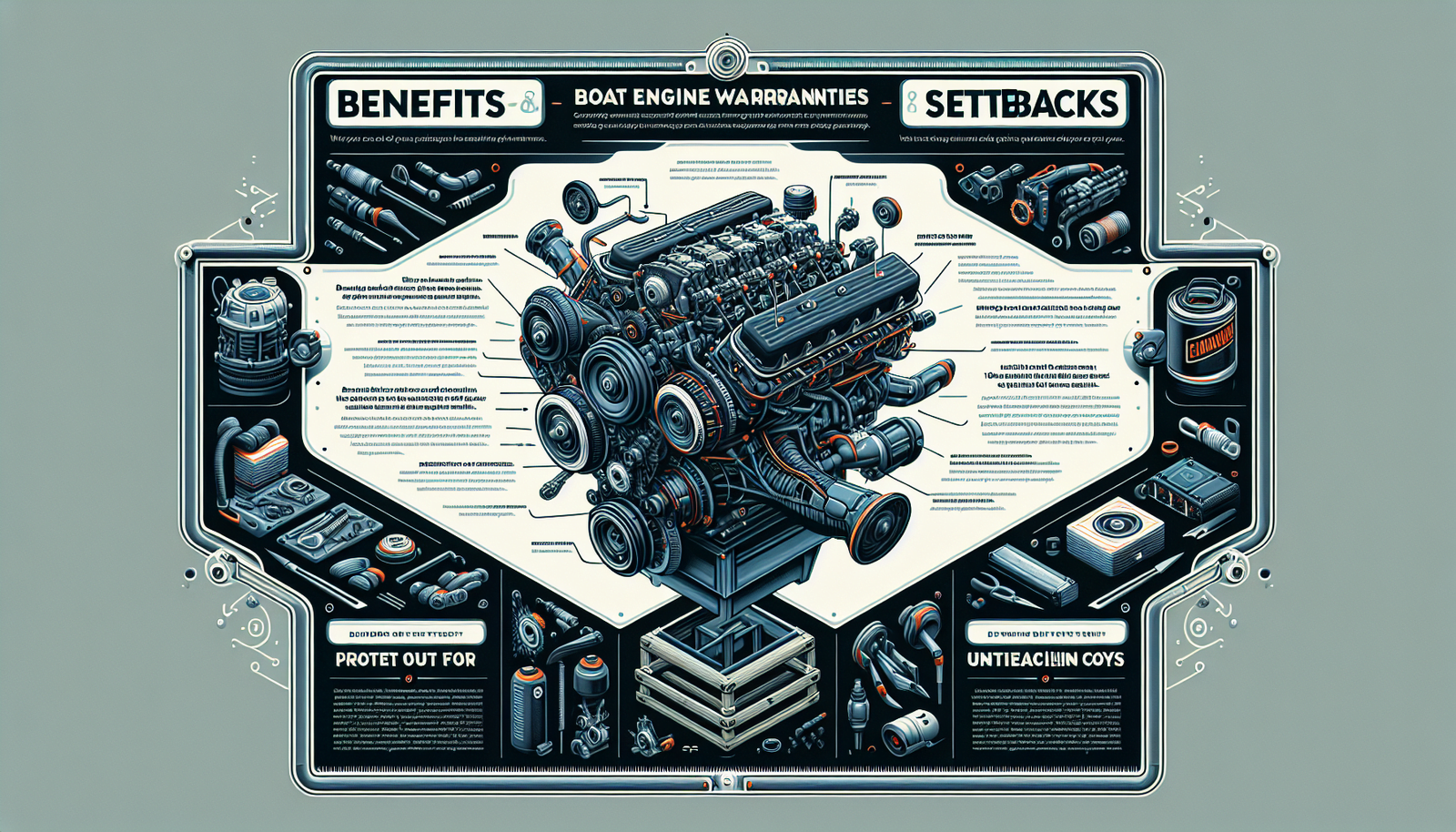Are you contemplating that dream boat purchase, or maybe you already have your treasured vessel safely docked? Whatever your boating status, there’s something crucial you need to know: comprehending boat engine warranties is imperative. “The Ultimate Guide to Understanding Boat Engine Warranties”, explains the nuts and bolts of these warranties in simple, easy to understand terms. Whether you’re a seasoned boater or a newbie on the waters, this indispensable guide helps you to demystify the complex world of boat engine warranties, ensuring you can navigate through any storm that might arise with your engine.
Basics of Boat Engine Warranties
Boat ownership comes with many responsibilities, and understanding your boat engine’s warranty is among the most crucial ones. This can not only save you a lot of potential future stress and money but also ensure your engine gets the best possible care.
Definition of a Boat Engine Warranty
A boat engine warranty is essentially a promise made by the manufacturer or dealer that, within a specific time frame, they’ll repair or replace faulty parts or even your whole engine if certain conditions are met. So it’s like an insurance policy, but it comes with the product at no additional cost.
Importance of Boat Engine Warranties
Why are boat engine warranties necessary? Well, imagine spending thousands or tens of thousands on a new engine, and a crucial part becomes faulty. If you’re within the warranty period, it could be restored or replaced without additional costs. Plus, a warranty is also indicative of the quality of the product. A long warranty often suggests the manufacturer is confident in its reliability.
Terms and Conditions Presented in Warranties
Warranties come with certain conditions which can include exclusions relating to wrong or careless use, lack of maintenance, and even unauthorized repairs. They also provide specifics such as the length of the warranty, whether it’s transferable, what parts are covered, and how to make a claim.
Different types of Boat Engine Warranties
Understanding the types of warranties is key to making the right decision. These include manufacturer’s warranty, extended warranty, and third party warranty.
Manufacturer’s Warranty
This is a promise from the manufacturer itself. Typically it covers any defects in materials, workmanship, or failure of their product under normal uses within a specified period.
Extended Warranty
This is usually offered either by the manufacturer or the seller. It extends the original warranty for an additional charge, offering extended peace of mind.
Third Party Warranty
Offered by companies other than the manufacturer or dealer, third-party warranties might cover your engine after the manufacturer’s warranty has expired.
Differences Between Different Types
Each type of warranty has its pros and cons, such as coverage extent, cost, dependability, and service quality. Your choice depends on your particular circumstances.

Understanding Warranty Terms and Conditions
Navigating warranty legalese can be daunting. But knowing what you’re signing up for can save you from unexpected shocks.
Decoding Legal Language
Don’t shy away from unfamiliar terms. Ask for clarification or conduct your own research. Some terms might indicate limitations to your warranty.
Understanding Length of Warranty
This relates to the period in which the warranty will cover your engine. It could be expressed in years or as hours of engine use.
Comprehending Coverage Details
Understand exactly what parts or services are covered and whether there are any deductibles or hidden costs.
Manufacturers’ Warranties and Their Variations
Each manufacturer’s warranty can be different in terms of what they offer and how they handle claims.
Popular Boat Engine Manufacturer Warranties
Several well-known manufacturers offer robust warranties, each with its own unique structure. They might have different coverage duration or areas.
Reading Between the Lines in Manufacturer Warranties
Reading the fine print helps you understand all the conditions and prevent any unforeseen warranty voids.

The Process of Claiming a Warranty
Knowing how to claim your warranty can make the process less stressful.
Initial Steps for Making a Claim
Firstly, review your warranty document. Contact your dealer or manufacturer and explain the problem.
Documentation Required for Warranty Claims
You may need proof of purchase, service records, or other documents, be ready to provide anything necessary to validate your claim.
Engaging With Customer Service
Clear communication with the customer service representatives is crucial. They can guide you through the process.
Common Warranty Claim Challenges
Warranty claims can sometimes be tricky but knowing what you might encounter can make it easier.
Common Obstacles in Claiming Warranties
Claims might be denied if they consider you’ve violated warranty conditions such as improper maintenance or unauthorized repairs.
How to Overcome Warranty Claim Hurdles
Keeping all maintenance records and adhering strictly to the terms and conditions can prevent potential hurdles.
Extended Warranties – Pros and Cons
Extended warranties can provide extra security but come with additional costs.
Understanding Extended Warranties
These warranties usually come into effect after the expiration of the manufacturer’s warranty.
Cost Versus Benefit Analysis of Extended Warranties
Compare the cost of the extended warranty with the potential repair costs to determine if it’s worth it.
Importance of Warranty Registration
It’s crucial to register your warranty as leaving it unattended has its implications.
Process of Warranty Registration
This usually involves providing some details and sending a form to the manufacturer or warranty provider.
Impact of Warranty Registration on Claims
Often, manufacturers require warranty registration before any claims can be deemed valid. It’s a way for them to keep track of their products.
Third Party Warranties – Insights and Perspectives
Third-party warranties can be an alternative to manufacturer warranties, but are they right for you?
Understanding Third Party Warranties
These are provided by an entity other than the manufacturer or dealer. The term, cost, and conditions might differ from manufacturer’s warranties.
Evaluating If Third Party Warranties are Worth It
One must be cautious as not all third-party providers are reliable. Researching the company and reading reviews can help ensure you’re dealing with a credible provider.
Tips for Managing Boat Engine Warranties
Proactive management can ensure your warranty serves its purpose and your engine stays in top condition.
Maintenance Reminders During Warranty Period
Sticking to the recommended maintenance schedule not only prolongs the life of your engine but also keeps your warranty valid.
Keep Clear and Organised Documents
Save all your purchase, maintenance, and repair documents. You never know when you’ll need them.
Understand the Fine Print of Your Warranty
Understanding your warranty in depth can prevent accidental voids and keep you prepared for any eventualities.
Remember, a boat engine is a significant investment. Understanding and managing your boat engine warranty can protect this investment and give you peace of mind. Knowing what your warranty entails and how to use it effectively can not only save you time and money but also keep your engine running smoothly for the long haul.

